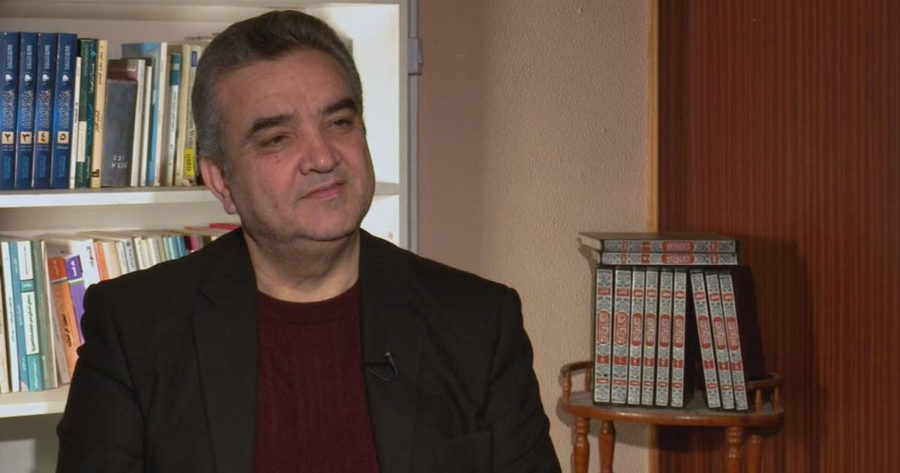
Unfortunately, we are not looking here for ways to avoid a catastrophe about to happen in Lebanon, but to look into an already existing catastrophe, manifested in unprecedented political deadlock, institutional failure, economic collapse, increase of ethnic conflict, loss of system authority, and fragility of rule of law.
I will avoid passing judgments, such as good or evil, right or wrong. Because, the current problem in Lebanon, in its magnitude and nature, is beyond personal intentions, deeper than blaming individuals or specific group, and far away from being personalized.
Accordingly, I tend to examine the political institution which is defined as: the political organizations, rules, and procedures that are devised to govern and control various constituents of the Lebanese society.
Therefore, our concern is not about the type of government but about the degree of government, not about beliefs and values but about authority and power distribution, not about nature or type of the political regime, but about the effectiveness of the political system, not about how politics is conceptualized or theorized but about how it is practiced.
In short, we are more concerned with the rules of the political game in Lebanon, through which politics is practiced, and by which society is controlled and governed.
Three dimensions I suggest to be of crucial importance for the study of the Lebanese political Problem: state-society relation problem, social dynamics, and the sovereignty problem.
The state-society relation problem
Lebanese society is formed of many religious, ethnic, and territorial communities. Such communities are close to be natural communities, where relations between members inside each community are immediate, and obligations are direct, and nothing intrudes from the outside of each community.
This is completely different from the relations, and obligations between individuals in a wider and more complex society composed of multiple communities and groups. Such Relations are not direct or immediate, but are based on general principles, ethical obligation, common values that hold the groups and communities together, and define their common national identity.
However, such relations do not happen by themselves, but are identified, managed and controlled by the political institutions (the State), whose main task and function is to maintain order, resolve disputes, sustain stability, and select authoritative leaders.
Thus, and as Durkheim puts it: The more complex and heterogeneous the society is, the more the achievement and maintenance of political community become dependent upon the workings of political institutions.
Since the time of declaring the establishment of Great Lebanon in 1923, the main challenge was to identify a nation and articulate a constitution, that preserves the specificities of each religious community, and at the same time establish a political institution that is independent of all social constituents, immune from the outcomes of differences and conflicts between social forces, and has the strength to encompass and stretch its authority over all activities in the society.
No serious attempts was made to resolve this dilemma, and the best strategy for the Lebanese whenever they were confronted with this dilemma, was to postpone it, and propose it as a future aspiration whose time did not come yet.
Thus, instead of defining Lebanon as a new intrinsic entity that transcends the smaller sub-identities, it was defined as collection or aggregation of religious communities. And instead of establishing a political institution that has the upper hand and ultimate authority above all social forces, bonds, and organizations, it was instituted as a sectarian regime that empowered religious sect authorities and leaders to penetrate deeply into the political system, and stretch their autonomous authority over almost all aspects of public life.
This has made the political process vulnerable to all sorts of social conflicts and religious differences, which in return weakened State’s authority, and narrowed its scope after establishing and legitimizing self-autonomy of sectarian institutions and structures.
Consequently, sectarianism became a trademark of the Lebanese political life, a defining concept of any constitutionality, legality and legitimacy. It also shaped most of political parties, augmented sectarian bonds on the account of national identity, minimized the level of interaction and integration between members of different community.
Social Dynamics Problem
This problem is conceptualized by the lack of societal dynamics to overcome any obstacle and be able to adapt face challenges, and have the power to make political changes. This lack is due to the weak rate of participation in public life, in the absence of public debate, and in the fragility and ineffectiveness of civil society institutions and national political parties whose main task is to promote public awareness, provide platforms for expressions, and encourage general engagements in political life.
October 17th movement or “revolution”, proved that societal movements were able to mobilize people to protest, able to raise political demands, but were not able to achieve any political change or institutional reform.
All this are indicators of the weakness in social dynamics, absence of active citizenship that allows individuals to be part of the decision making process, fragility of political domain, low rate of political participation, and most importantly, the decline of having governing elites accountable for their actions, and reinforcing patronage relations between the ruler and the ruled characterized by: providing personal protection and services from the side of the ruler, in return for personal silent political loyalty from the side of the ruled.
The sovereignty Problem
Sovereignty represents the strength of the political institution to exercise power over all domains and activities in society, and to have the upper hand, above all social forces, parties, religious and ethnic authorities, and external presence. This is a distinctive concept of any political system, regardless of its nature and morals, and is an essential condition for any system to function properly, and fully practice its authority .
This concept is well reflected by Madison: “the great difficulty lies in enabling the government to control the governed; and in the next place oblige it to control itself.”
Thus the primary problem in countries of fragile political institution, is not liberty but the creation of a legitimate public order. And as Hunington puts it: “Men may, have order without liberty, but they cannot have liberty without order. Authority must exist before it can be limited”.
Restoring Lebanon’s sovereignty is the foremost challenge in Lebanon, it is an essential necessity for any political institution, for any democracy, rule of law, and even legitimacy.
Lebanon’s sovereignty was diminished by Israeli occupation, confiscated by the Syrian occupation, fragmented by the civil war, and is currently eroding by the Hizbullah’s excessive armed forces.
It is true that all members of Hizbullah are Lebanese, and that Hizbullah is represented by elected parliamentary bloc. However, this does not legitimize it’s excessive force and military arms outside the legal security and military institutions. State sovereignty is not subject to any sort of voting or referendum. In simple terms: State sovereignty comes first, Legitimacy comes afterword or second.
That is why Max Weber defined the state as: the political institution that has the exclusive right to practice legitimate coercion. In other words the State is the only institution that can possess and control arms. This concept is not debatable, and questioning it is equal to questioning the feasibility and uselessness of having a political institution.
Finally, as general guidelines for reversing the disastrous course of political life in Lebanon, I recommend the following:
- Restore State’s full scope sovereignty. That comes before political reform, and even before democracy and human rights values. No rights can be secured and preserved without well established authority.
- Activate social dynamics, by supporting civil societies, Trans-sectarian secular parties, programs and campaigns that promote awareness and practices of democratic liberal values.
- Free the political institution from the influence and authority of sectarian forces and organizations. As a way to prioritize Lebanese Identity, and have the Loyalty to the State, above all other identities and loyalties.

